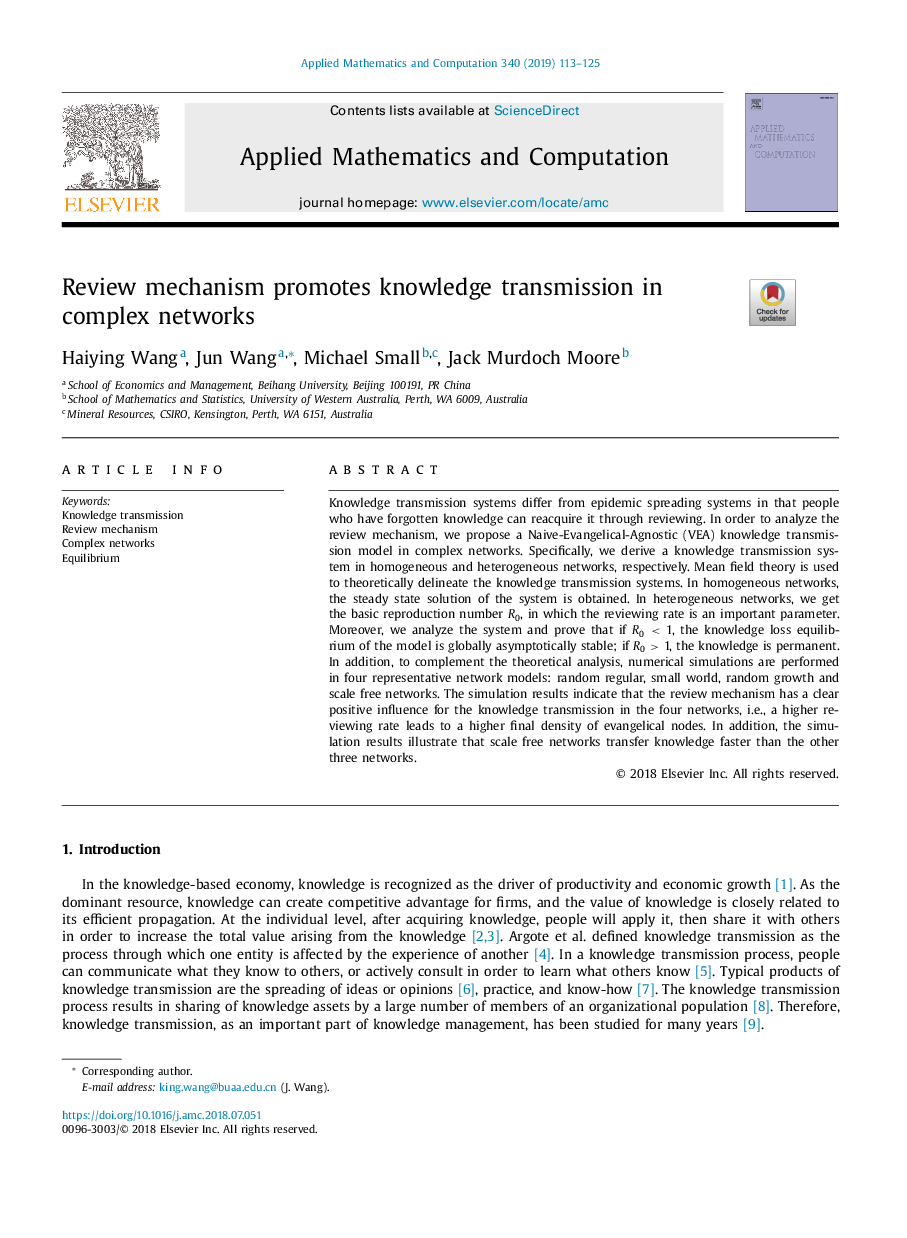| Article ID | Journal | Published Year | Pages | File Type |
|---|---|---|---|---|
| 10149798 | Applied Mathematics and Computation | 2019 | 13 Pages |
Abstract
Knowledge transmission systems differ from epidemic spreading systems in that people who have forgotten knowledge can reacquire it through reviewing. In order to analyze the review mechanism, we propose a Naive-Evangelical-Agnostic (VEA) knowledge transmission model in complex networks. Specifically, we derive a knowledge transmission system in homogeneous and heterogeneous networks, respectively. Mean field theory is used to theoretically delineate the knowledge transmission systems. In homogeneous networks, the steady state solution of the system is obtained. In heterogeneous networks, we get the basic reproduction number R0, in which the reviewing rate is an important parameter. Moreover, we analyze the system and prove that if R0 < 1, the knowledge loss equilibrium of the model is globally asymptotically stable; if R0 > 1, the knowledge is permanent. In addition, to complement the theoretical analysis, numerical simulations are performed in four representative network models: random regular, small world, random growth and scale free networks. The simulation results indicate that the review mechanism has a clear positive influence for the knowledge transmission in the four networks, i.e., a higher reviewing rate leads to a higher final density of evangelical nodes. In addition, the simulation results illustrate that scale free networks transfer knowledge faster than the other three networks.
Related Topics
Physical Sciences and Engineering
Mathematics
Applied Mathematics
Authors
Wang Haiying, Wang Jun, Michael Small, Jack Murdoch Moore,
